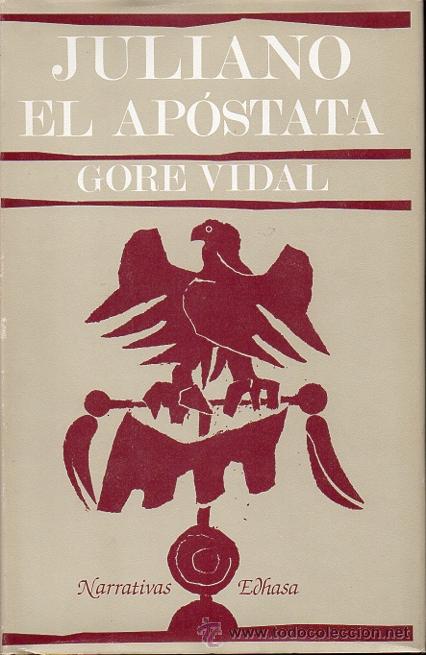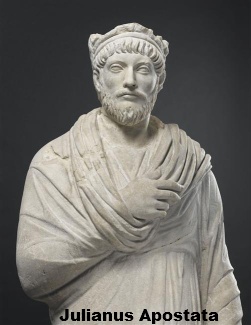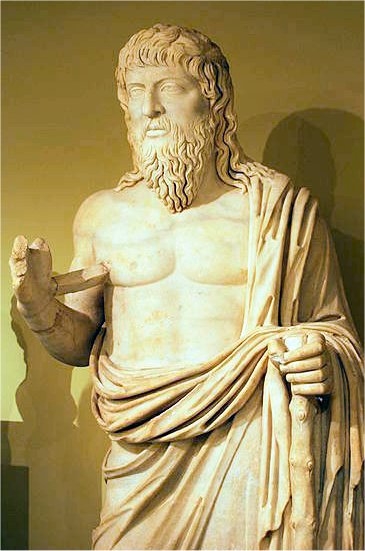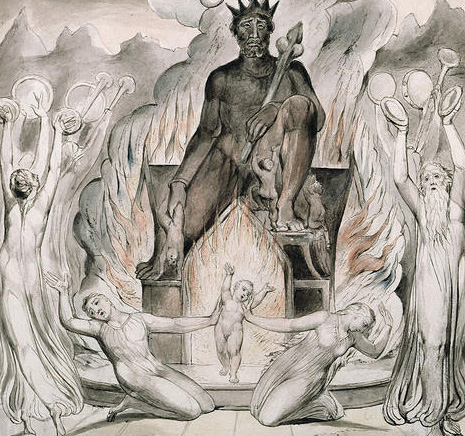Last pages of The Antichrist, which Nietzsche finished on September 30, 1888 but was not published until 1895. Though ellipsis are in the original, I omitted adding more of them between unquoted sentences:
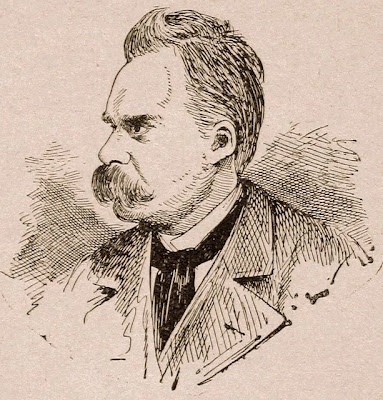
The order of castes, the highest, the dominating law, is merely the ratification of an order of nature, of a natural law of the first rank, over which no arbitrary fiat, no “modern idea,” can exert any influence.
The order of castes, the order of rank, simply formulates the supreme law of life itself; the separation of the three types is necessary to the maintenance of society, and to the evolution of higher types, and the highest types—the inequality of rights is essential to the existence of any rights at all. A right is a privilege. Every one enjoys the privileges that accord with his state of existence. Let us not underestimate the privileges of the mediocre. Life is always harder as one mounts the heights—the cold increases, responsibility increases. A high civilization is a pyramid: it can stand only on a broad base; its primary prerequisite is a strong and soundly consolidated mediocrity.
Whom do I hate most heartily among the rabbles of today? The rabble of Socialists, the apostles to the Chandala, who undermine the workingman’s instincts, his pleasure, his feeling of contentment with his petty existence—who make him envious and teach him revenge…. Wrong never lies in unequal rights; it lies in the assertion of “equal” rights…. What is bad? But I have already answered: all that proceeds from weakness, from envy, from revenge. The anarchist and the Christian have the same ancestry…
♣
The harvest is blighted overnight… That which stood there aere perennis, the imperium Romanum, the most magnificent form of organization under difficult conditions that has ever been achieved, and compared to which everything before it and after it appears as patchwork, bungling, dilletantism—those holy anarchists made it a matter of “piety” to destroy “the world,” which is to say, the imperium Romanum, so that in the end not a stone stood upon another. The Christian and the anarchist: both are décadents; both are incapable of any act that is not disintegrating, poisonous, degenerating, blood-sucking; both have an instinct of mortal hatred of everything that stands up, and is great, and has durability, and promises life a future… Christianity was the vampire of the imperium Romanum—overnight it destroyed the vast achievement of the Romans: the conquest of the soil for a great culture that could await its time. Can it be that this fact is not yet understood?
The imperium Romanum that we know, and that the history of the Roman provinces teaches us to know better and better—this most admirable of all works of art in the grand manner was merely the beginning, and the structure to follow was to prove its worth for thousands of years. To this day, nothing on a like scale sub specie aeterni has been brought into being, or even dreamed of! This organization was strong enough to withstand bad emperors: the accident of personality has nothing to do with such things—the first principle of all genuinely great architecture. But it was not strong enough to stand up against the corruptest of all forms of corruption—against Christians… These stealthy worms, which under the cover of night, mist and duplicity, crept upon every individual, sucking him dry of all earnest interest in real things, of all instinct for reality—this cowardly, effeminate and sugar-coated gang gradually alienated all “souls,” step by step, from that colossal edifice, turning against it all the meritorious, manly and noble natures that had found in the cause of Rome their own cause, their own serious purpose, their own pride.
One has but to read Lucretius to know what Epicurus made war upon—not paganism, but “Christianity,” which is to say, the corruption of souls by means of the concepts of guilt, punishment and immortality. He combatted the subterranean cults, the whole of latent Christianity—to deny immortality was already a form of genuine salvation. Epicurus had triumphed, and every respectable intellect in Rome was Epicurean—when Paul appeared… Paul, the Chandala hatred of Rome, of “the world,” in the flesh and inspired by genius—the Jew, the eternal Jew par excellence… What he saw was how, with the aid of the small sectarian Christian movement that stood apart from Judaism, a “world conflagration” might be kindled; how, with the symbol of “God on the cross,” all secret seditions, all the fruits of anarchistic intrigues in the empire, might be amalgamated into one immense power. “Salvation is of the Jews.” Christianity is the formula for exceeding and summing up the subterranean cults of all varieties, that of Osiris, that of the Great Mother, that of Mithras, for instance: in his discernment of this fact the genius of Paul showed itself.
This was his revelation at Damascus: he grasped the fact that he needed the belief in immortality in order to rob “the world” of its value, that the concept of “hell” would master Rome—that the notion of a “beyond” is the death of life… Nihilist and Christian: they rhyme in German, and they do more than rhyme…
♣
The whole labour of the ancient world gone for naught: I have no word to describe the feelings that such an enormity arouses in me. And, considering the fact that its labour was merely preparatory, that with adamantine self-consciousness it laid only the foundations for a work to go on for thousands of years, the whole meaning of antiquity disappears!… To what end the Greeks? to what end the Romans? All the prerequisites to a learned culture, all the methods of science, were already there and had been there for two thousand years! All gone for naught! All overwhelmed in a night, but not by a convulsion of nature! But brought to shame by crafty, sneaking, invisible, anæmic vampires! Not conquered,—only sucked dry!… Hidden vengefulness, petty envy, became master! Everything wretched, intrinsically ailing, and invaded by bad feelings, the whole ghetto-world of the soul was at once on top! One needs but read any of the Christian agitators, for example, St. Augustine, in order to realize, in order to smell, what filthy fellows came to the top.
♣
Here it becomes necessary to call up a memory that must be a hundred times more painful to Germans. The Germans have destroyed for Europe the last great harvest of civilization that Europe was ever to reap—the Renaissance. Is it understood at last, will it ever be understood, what the Renaissance was? The transvaluation of Christian values: an attempt with all available means, all instincts and all the resources of genius to bring about a triumph of the opposite values, the more noble values…
To attack at the critical place, at the very seat of Christianity, and there enthrone the more noble values—that is to say, to insinuate them into the instincts, into the most fundamental needs and appetites of those sitting there… I see before me the possibility of a perfectly heavenly enchantment and spectacle: it seems to me to scintillate with all the vibrations of a fine and delicate beauty, and within it there is an art so divine, so infernally divine, that one might search in vain for thousands of years for another such possibility; I see a spectacle so rich in significance and at the same time so wonderfully full of paradox that it should arouse all the gods on Olympus to immortal laughter: Cæsar Borgia as pope!… Am I understood?… Well then, that would have been the sort of triumph that I alone am longing for today: by it Christianity would have been swept away!
What happened? A German monk, Luther, came to Rome. This monk, with all the vengeful instincts of an unsuccessful priest in him, raised a rebellion against the Renaissance in Rome… Instead of grasping, with profound thanksgiving, the miracle that had taken place: the conquest of Christianity at its capital—instead of this, his hatred was stimulated by the spectacle. A religious man thinks only of himself. Luther saw only the depravity of the papacy at the very moment when the opposite was becoming apparent: the old corruption, the peccatum originale, Christianity itself, no longer occupied the papal chair! Instead there was life! Instead there was the triumph of life! Instead there was a great yea to all lofty, beautiful and daring things!… And Luther restored the church.
♣
With this I come to a conclusion and pronounce my judgment. I condemn Christianity; I bring against the Christian church the most terrible of all the accusations that an accuser has ever had in his mouth. It is, to me, the greatest of all imaginable corruptions; it seeks to work the ultimate corruption, the worst possible corruption. The Christian church has left nothing untouched by its depravity; it has turned every value into worthlessness, and every truth into a lie, and every integrity into baseness of soul.
This eternal accusation against Christianity I shall write upon all walls, wherever walls are to be found—I have letters that even the blind will be able to see… I call Christianity the one great curse, the one great intrinsic depravity, the one great instinct of revenge, for which no means are venomous enough, or secret, subterranean and small enough,—I call it the one immortal blemish upon the human race…
And mankind reckons time from the dies nefastus when this fatality befell—from the first day of Christianity!—Why not rather from its last?—From today?—
Umwertung aller Werte!…
